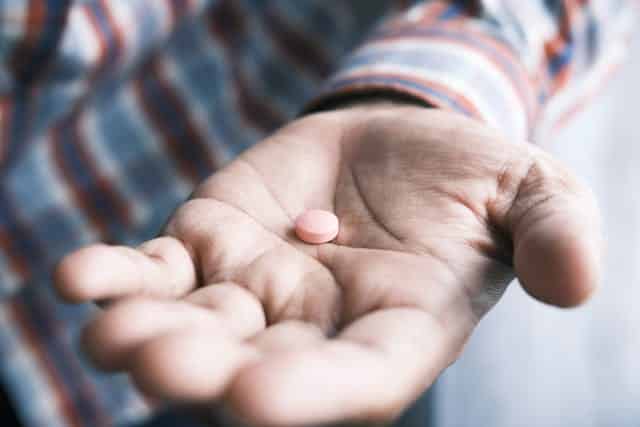Addiction is one of the most challenging struggles a person can face, and quitting certain substances can be incredibly difficult due to their highly addictive nature, severe withdrawal symptoms, and long-term impact on the brain. While many drugs are dangerous, some are especially hard to quit because they create both physical and psychological dependencies, making it nearly impossible for users to stop without professional help.
At River Rocks Recovery, we understand the complexities of addiction and provide evidence-based treatment programs to help individuals overcome substance use disorders. Our services include:
- Addiction Treatment Program
- Partial Hospitalization Program (PHP)
- Intensive Outpatient Program (IOP)
- Outpatient Program (OP)
- Sober Living Program
Quitting drugs is a difficult journey, but with the right treatment, support, and recovery plan, long-term sobriety is possible. This article explores the hardest drugs to quit, why they are so addictive, and how professional drug rehab treatment can help individuals reclaim their lives.
Why Are Some Drugs Harder to Quit Than Others?
Certain drugs create a stronger dependency than others due to several factors, including:
- Effect on Brain Chemistry – Substances that flood the brain with dopamine, such as opioids, cocaine, and methamphetamine, lead to intense cravings and compulsive drug-seeking behavior.
- Severity of Withdrawal Symptoms – Some drugs cause severe physical withdrawal symptoms that make quitting difficult or even life-threatening.
- Psychological Dependence – Drugs like cocaine, meth, and benzodiazepines create strong emotional and mental addiction, leading to depression, anxiety, and relapse risks.
Let’s examine the top five hardest drugs to quit and how professional treatment can help.
1. Heroin and Other Opioids
Why Is Heroin So Addictive?
Heroin is one of the most addictive substances in the world. It belongs to the opioid family, which includes prescription painkillers like oxycodone, hydrocodone, and fentanyl. Heroin binds to opioid receptors in the brain, creating intense feelings of euphoria, relaxation, and pain relief.
Long-term heroin use rewires the brain, making it dependent on the drug to function normally. When a person tries to quit, they experience severe withdrawal symptoms, making relapse highly likely without medical intervention.
Withdrawal Symptoms of Heroin:
- Severe muscle pain and cramps
- Nausea, vomiting, and diarrhea
- Intense drug cravings
- Anxiety, depression, and insomnia
- Cold sweats, shivering, and fever-like symptoms
How to Quit Heroin:
Heroin withdrawal can be extremely painful and dangerous. The best way to quit is through a medically supervised detox program followed by structured addiction treatment. At River Rocks Recovery, our Opiate Rehab Treatment includes:
- Medication-Assisted Treatment (MAT) to reduce cravings and withdrawal symptoms.
- Cognitive-Behavioral Therapy (CBT) and Dialectical Behavior Therapy (DBT) to address psychological addiction.
- Sober living programs to provide a structured, drug-free environment for long-term recovery.
2. Methamphetamine (Meth)
Why Is Meth So Addictive?
Methamphetamine (meth) is a powerful stimulant that floods the brain with dopamine, creating an extreme rush of energy, confidence, and euphoria. Over time, meth use damages dopamine receptors, making it difficult for users to experience pleasure naturally.
Withdrawal Symptoms of Meth:
- Severe depression and suicidal thoughts
- Intense fatigue and lack of motivation
- Strong cravings that last for weeks or months
- Paranoia and hallucinations
- Increased appetite and weight gain
How to Quit Meth:
Meth addiction requires intensive addiction treatment, including:
- Medical detox to safely manage withdrawal symptoms.
- Behavioral therapy to help restore dopamine function and improve mood.
- Sober living programs to maintain accountability and structure in recovery.
At River Rocks Recovery, our Meth Rehab Treatment provides the necessary support to overcome long-term meth addiction and rebuild a fulfilling life.
3. Cocaine and Crack Cocaine
Why Is Cocaine Addictive?
Cocaine is a highly addictive stimulant that increases dopamine levels in the brain, producing intense but short-lived feelings of pleasure and energy. The crash after cocaine use causes extreme depression and anxiety, which pushes users to take more of the drug to avoid withdrawal symptoms.
Crack cocaine is even more addictive than powdered cocaine because it enters the bloodstream faster, leading to a stronger but shorter high, which fuels repeated use and dependency.
Withdrawal Symptoms of Cocaine:
- Severe depression and suicidal thoughts
- Irritability and intense mood swings
- Extreme fatigue and lack of motivation
- Disturbing nightmares and sleep disturbances
- Strong cravings that last for months
How to Quit Cocaine:
Because cocaine addiction is primarily psychological, recovery requires:
- Behavioral therapy to retrain the brain and change thought patterns.
- Support groups and counseling to manage emotional withdrawal.
- Relapse prevention strategies to identify and avoid triggers.
At River Rocks Recovery, our Intensive Outpatient Program (IOP) and Partial Hospitalization Program (PHP) provide comprehensive care for cocaine addiction recovery.

4. Benzodiazepines (Xanax, Valium, Klonopin)
Why Are Benzos Addictive?
Benzodiazepines (benzos) are prescribed for anxiety, panic disorders, and insomnia, but they are highly addictive when used long-term. Benzos slow down brain activity, making users feel calm and relaxed. However, stopping suddenly can cause dangerous withdrawal symptoms, including seizures.
Withdrawal Symptoms of Benzos:
- Severe anxiety and panic attacks
- Insomnia and restlessness
- Tremors and muscle spasms
- Seizures (in extreme cases)
- Hallucinations and paranoia
How to Quit Benzos:
Benzo withdrawal should be done under medical supervision to prevent life-threatening complications. A gradual tapering process is the safest way to quit.
At River Rocks Recovery, our Outpatient Program (OP) and Sober Living Program offer:
- Medication-assisted detox for safe withdrawal.
- Therapeutic techniques to manage anxiety without medication.
- Long-term recovery planning to prevent relapse.
5. Alcohol
Why Is Alcohol Addictive?
Alcohol is one of the most commonly abused substances, and over time, it rewires the brain’s reward system, leading to physical and psychological dependence.
Withdrawal Symptoms of Alcohol:
- Tremors and shakiness
- Hallucinations and confusion
- Seizures (in severe cases)
- Delirium tremens (DTs), which can be fatal
How to Quit Alcohol:
Medical detox is essential for alcohol withdrawal. At River Rocks Recovery, we provide:
- Supervised detox to prevent seizures and DTs.
- Behavioral therapy to address triggers and cravings.
- Long-term recovery support through PHP, IOP, and sober living programs.
Seeking Help for Addiction: Recovery Is Possible
Breaking free from addiction to heroin, meth, cocaine, benzodiazepines, or alcohol is one of the hardest challenges a person can face. These substances take a severe toll on both the body and mind, making it nearly impossible to quit without professional help and long-term support.
However, no addiction is too strong to overcome. With the right treatment, therapy, and support system, individuals can break the cycle of addiction and build a healthier, sober life. Whether you or a loved one is struggling with severe withdrawal symptoms, overwhelming cravings, or repeated relapses, there is hope.
If you or someone you love is struggling with substance use disorder, don’t wait until it’s too late. The path to long-term sobriety begins with taking the first step toward recovery. Call River Rocks Recovery at 888.905.6281 today for confidential support and to learn more about our addiction treatment programs.
FAQ About the Hardest Drugs to Quit
What are the hardest drugs to quit?
The hardest drugs to quit include:
- Heroin and other opioids – Due to intense cravings and painful withdrawal symptoms.
- Methamphetamine (meth) – Causes severe psychological dependence and long-term brain damage.
- Cocaine and crack cocaine – Highly addictive due to its effect on dopamine levels.
- Benzodiazepines (Xanax, Valium, Klonopin) – Can cause life-threatening withdrawal symptoms.
- Alcohol – Withdrawal can lead to seizures and delirium tremens (DTs), which can be fatal.
Why is heroin so addictive?
Heroin binds to opioid receptors in the brain, creating intense feelings of euphoria and pain relief. Long-term use rewires brain chemistry, making it difficult to function without the drug, leading to severe withdrawal symptoms.
Can quitting meth cause depression?
Yes. Methamphetamine addiction depletes dopamine levels, and quitting can cause severe depression, suicidal thoughts, and extreme fatigue. Meth withdrawal can last for weeks, requiring professional addiction treatment for recovery.
Is cocaine withdrawal dangerous?
Cocaine withdrawal is not physically dangerous, but it can cause intense psychological symptoms, including:
- Severe depression
- Suicidal thoughts
- Extreme cravings
- Insomnia and paranoia
Why do benzodiazepines have life-threatening withdrawal symptoms?
Benzodiazepines slow down brain activity, and stopping suddenly can cause dangerous neurological effects, including:
- Seizures
- Severe anxiety and panic attacks
- Hallucinations
- Tremors and muscle spasms
A medically supervised detox is necessary for safe benzodiazepine withdrawal.
Why is alcohol withdrawal dangerous?
Alcohol withdrawal can cause delirium tremens (DTs), a life-threatening condition that includes:
- Severe confusion
- Hallucinations
- Seizures
- Heart complications
Medical detox is essential to prevent fatal withdrawal symptoms.
How can addiction treatment help someone quit these drugs?
At River Rocks Recovery, we offer comprehensive addiction treatment programs, including:
- Partial Hospitalization Program (PHP) – A structured, intensive treatment plan.
- Intensive Outpatient Program (IOP) – Provides therapy and relapse prevention strategies.
- Outpatient Program (OP) – Long-term support for maintaining sobriety.
- Sober Living Program – A safe and supportive environment for recovery.




























